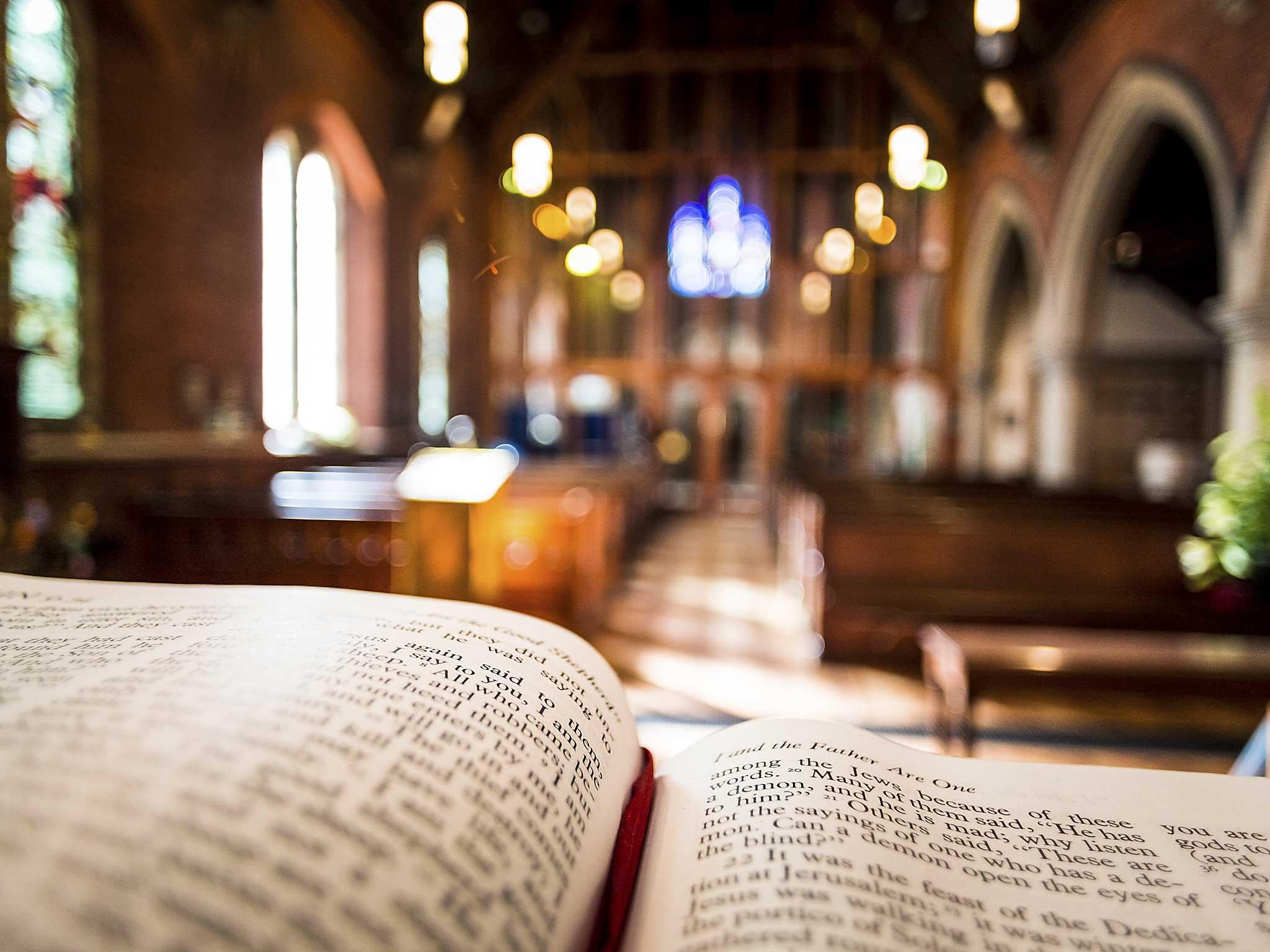Bishop 'deeply distressed' by abuse after Qur'an reading in cathedral service
Church receives criticism for inviting Muslim student to read Arabic passages about birth of Christ

Your support helps us to tell the story
From reproductive rights to climate change to Big Tech, The Independent is on the ground when the story is developing. Whether it's investigating the financials of Elon Musk's pro-Trump PAC or producing our latest documentary, 'The A Word', which shines a light on the American women fighting for reproductive rights, we know how important it is to parse out the facts from the messaging.
At such a critical moment in US history, we need reporters on the ground. Your donation allows us to keep sending journalists to speak to both sides of the story.
The Independent is trusted by Americans across the entire political spectrum. And unlike many other quality news outlets, we choose not to lock Americans out of our reporting and analysis with paywalls. We believe quality journalism should be available to everyone, paid for by those who can afford it.
Your support makes all the difference.A Scottish bishop has revealed his “deep distress” at the response after a local Muslim student read Arabic passages from the Qur'an during a service at St Mary’s Cathedral in Glasgow.
David Chillingworth, the head of the Scottish Episcopal Church and Bishop of St Andrews, Dunkeld and Dunblane, said he was dismayed at the “widespread offence” and condemned the “widespread abuse” the cathedral community had since received.
In an online post, he said: “The decisions which have led to the situation in St Mary’s Cathedral are a matter for the Provost and the Cathedral community but the Scottish Episcopal Church is deeply distressed at the widespread offence which has been caused.
"We also deeply regret the widespread abuse which has been received by the Cathedral community.”
The controversy followed the decision to invite the student, Madinah Javed, 19, to read a segment of the Qur'an relating to the birth of Jesus Christ, in an attempt to help improve inter-faith relations in Glasgow. Islam considers Christ to be a prophet but not the son of God.
The move sparked a backlash from some Christian leaders who deemed it “ill-advised” and “inappropriate”.
Michael Nazir-Ali, the former Bishop of Rochester, said: “Christians should know what their fellow citizens believe and this can include reading the Qur’an for themselves, whether in the original or in translation. This is not, however, the same thing as having it read in church in the context of public worship.
“The authorities of the Scottish Episcopal Church should immediately repudiate this ill-advised invitation and exercise appropriate discipline for those involved.”
Some social media users also targeted the church with a number of abusive messages.
Scottish police confirmed they were investigating some of the posts. A spokesperson said: "We can confirm we are investigating reports of offensive comments made towards St Mary's Episcopal Cathedral in Glasgow and inquiries are ongoing.
"Police Scotland will not tolerate any form of hate and encourages all communities to work together to ensure no-one feels threatened or marginalised."
The provost of St Mary’s, Kelvin Holdsworth, said similar interfaith readings had “happened a number of times in the past in this and in other churches, and have led to deepening friendships locally, to greater awareness of the things we hold in common and to dialogue about the ways in which we differ."
Mr Chillingworth said the row would not deter the church’s attempts to build interfaith links.
He said: “Those who seek to work in the area of interfaith relationships must weigh carefully whether the choices which they make are appropriate or otherwise. In today’s world, those judgements must give careful consideration to good relationships which have been carefully nurtured over many years in a local context. They must also weigh carefully the way in which national and international issues shape perceptions of what is appropriate or inappropriate.
“In response to what has happened at the Cathedral, the Scottish Episcopal Church will bring together all those who are involved in the development of interfaith relations. Our intention will be as a Church to explore how, particularly in the area of worship, this work can be carried forward in ways which will command respect.”
Join our commenting forum
Join thought-provoking conversations, follow other Independent readers and see their replies
Comments